VAWA Applications: Frequantly Asked Questions
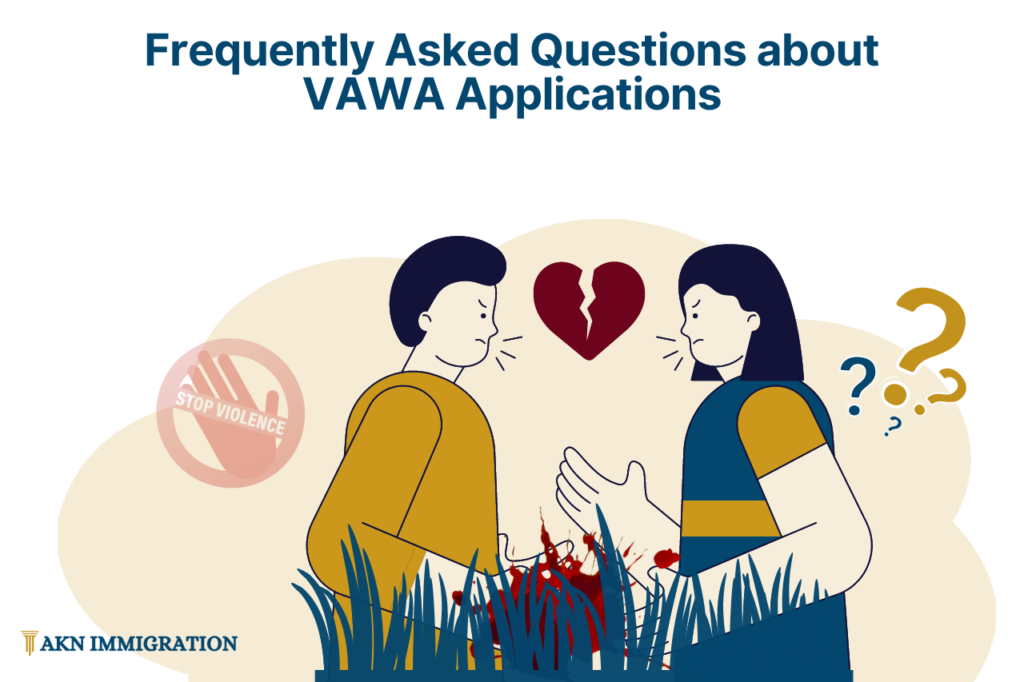
Applying for a VAWA self-petition is a significant step toward seeking protection and justice for abuse survivors. However, this path comes with its own set of questions and uncertainties. Let’s explore some common FAQs related to VAWA self-petitions and how to address them.
VAWA Visa Requirements Explained
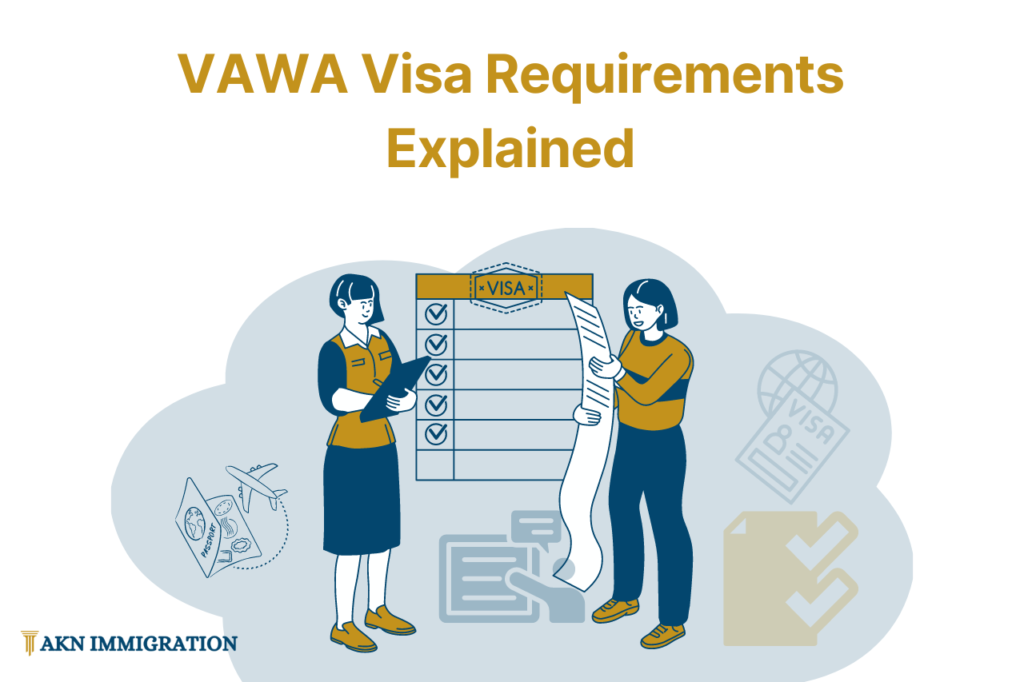
The Violence Against Women Act (VAWA) stands as a crucial legal framework aimed at shielding individuals from domestic violence and abuse. Despite its name, VAWA extends far beyond gender-specific boundaries, providing vital protections to anyone who has suffered abuse from a U.S. citizen or lawful permanent resident. This legislation acknowledges that domestic violence can occur in diverse relationships beyond marriage, empowering victims to pursue relief and immigration benefits irrespective of their relationship status with the abuser. Meeting VAWA Visa Requirements is essential for those seeking protection under this act.
Navigating the VAWA Self-Petition Process
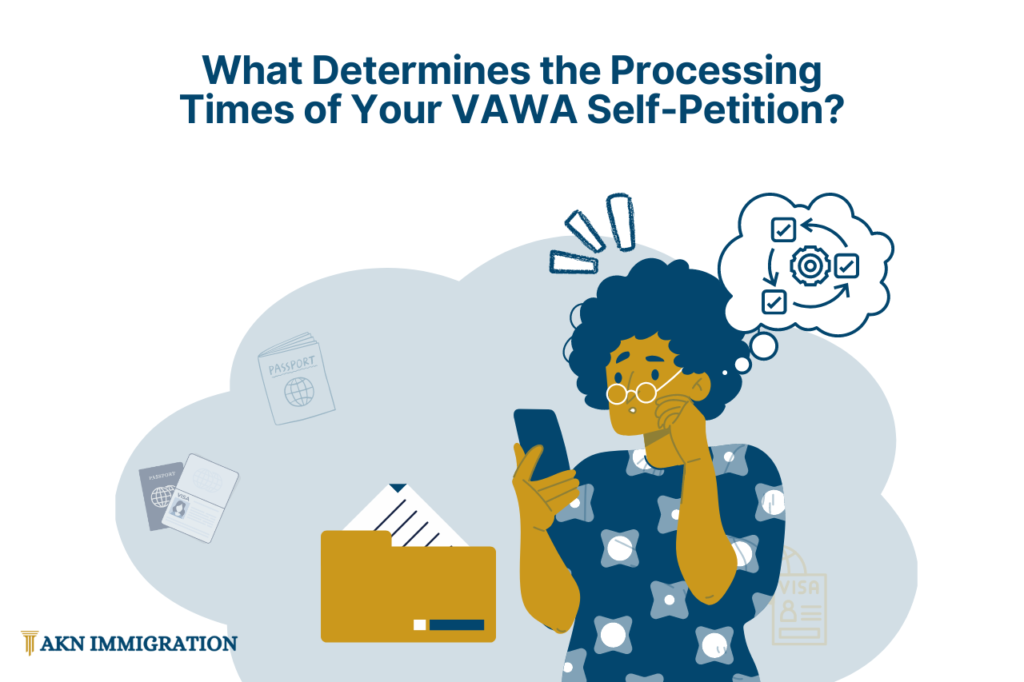
Navigating the VAWA Self-Petition Process is a crucial legal pathway for undocumented individuals who have experienced domestic abuse at the hands of a U.S. citizen or lawful permanent resident-qualifying relative. This process empowers victims by allowing them to independently apply for immigration status without relying on their abuser. Despite its name, VAWA protections are accessible to all victims, regardless of gender.
Common Challenges of VAWA Self Petition : Overcoming Them
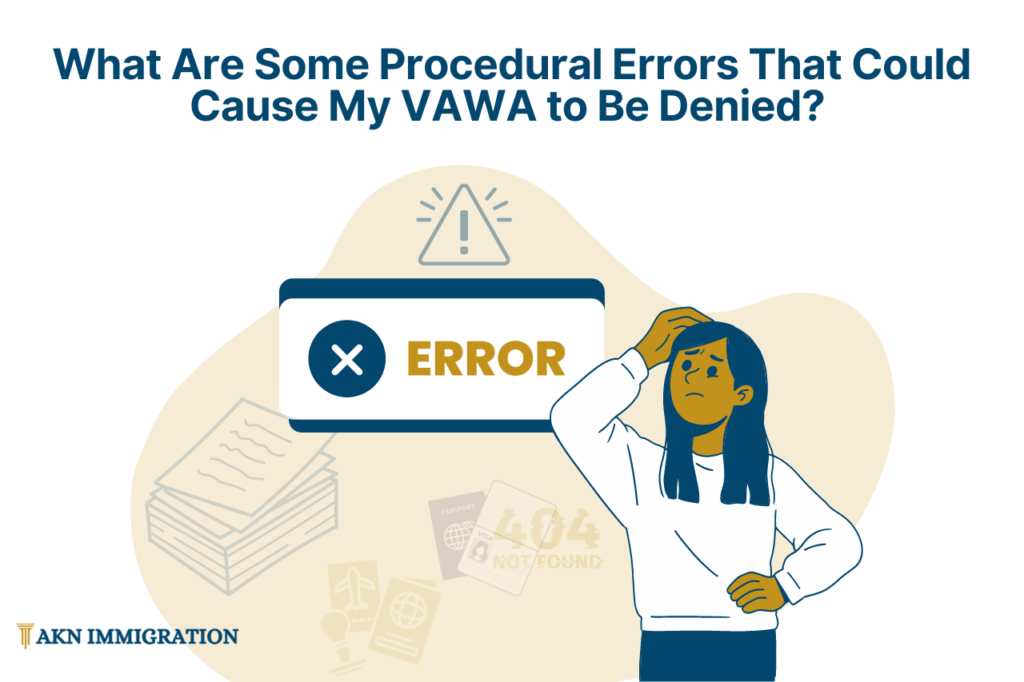
Applying for a VAWA self-petition is a significant step toward seeking protection and justice for abuse survivors. However, this path has its obstacles and Challenges of VAWA Self Petition. Understanding potential stumbling blocks can empower you to approach the process more effectively. Let’s explore some common difficulties VAWA self-petition and how to overcome them.
VAWA: Navigating protections with a criminal record?
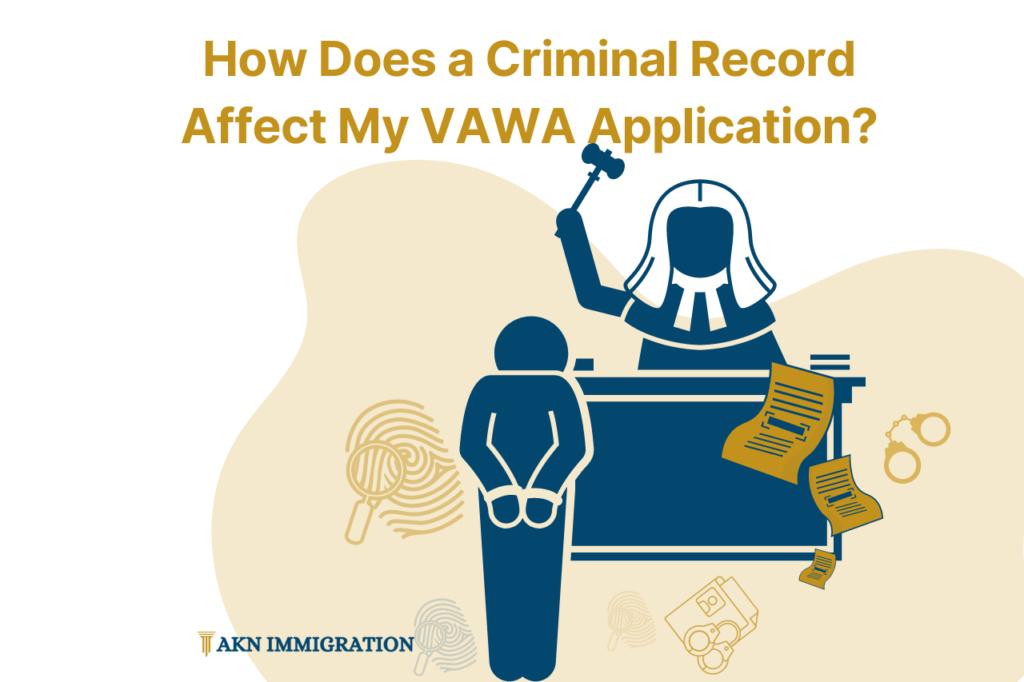
Navigating VAWA protections with a criminal record requires careful consideration and thorough preparation. Though having a criminal record doesn’t automatically disqualify applicants for VAWA protection, specific convictions may raise concerns during the application process.
Before attempting a VAWA petition alone, consult an experienced immigration attorney for guidance. Moreover, ensuring comprehensive rehabilitation documentation and addressing criminal record concerns are vital for navigating the VAWA application process successfully.
VAWA: A Comprehensive Guide for Abused Spouses.
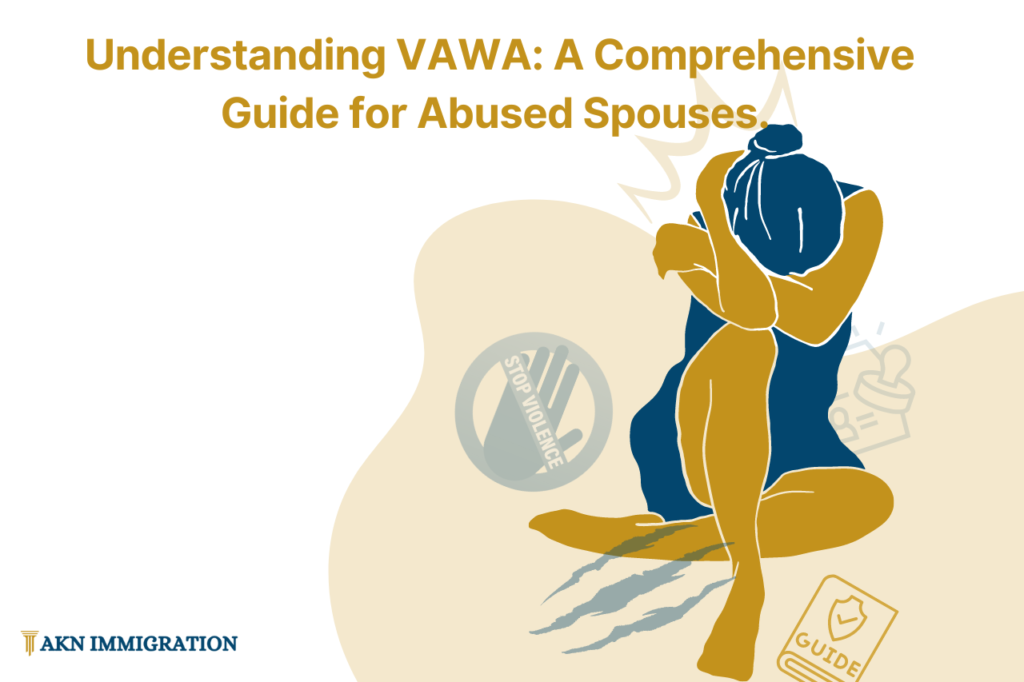
The Violence Against Women Act (VAWA) provides immigration protection to individuals, regardless of gender, who have experienced abuse at the hands of a U.S. citizen or green card holder qualifying relative.
One of the critical provisions of VAWA allows eligible immigrants to self-petition for lawful permanent residency (a Green Card) without the knowledge or consent of their abuser, a process commonly referred to as self-petitioning for Green Card under VAWA. This provision is of utmost importance as it empowers victims to seek safety and independence from their abuser, preventing them from being controlled through their immigration status.
Child VAWA Application: Protecting Children
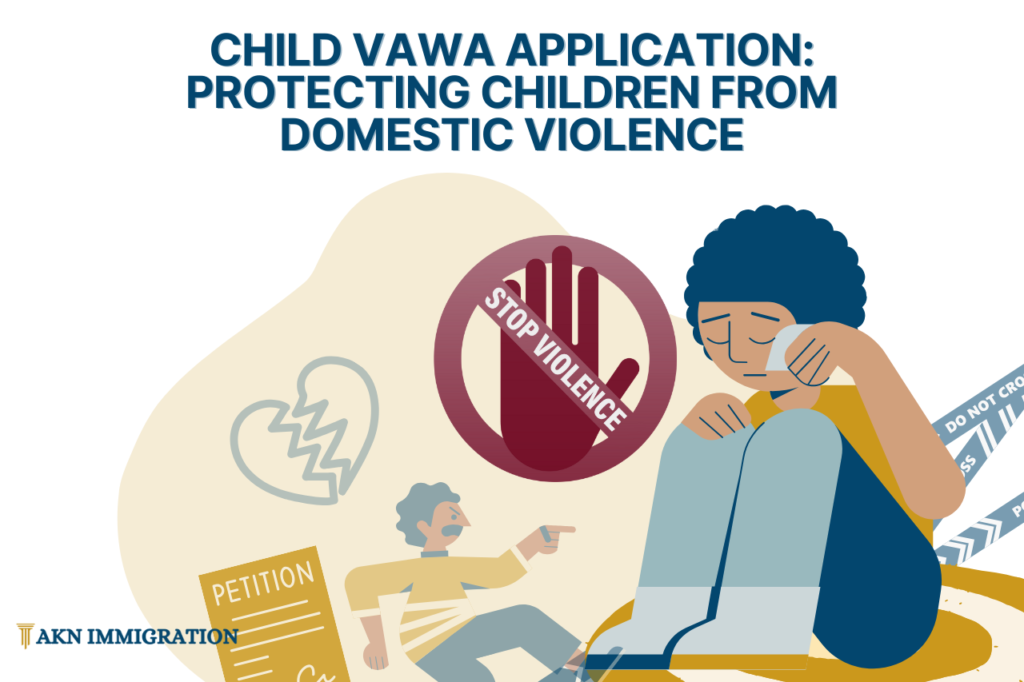
The Violence Against Women Act (VAWA), encompassing Child VAWA Application, stands as a landmark piece of legislation aimed at combating domestic violence and abuse in the United States.
Despite its name, VAWA extends far beyond its initial scope, providing critical protections to individuals of all genders who have suffered abuse at the hands of a U.S. citizen or lawful permanent resident-qualifying relatives.
Form I-751 Petition: Simplified Guide to Removing Conditions on Residence
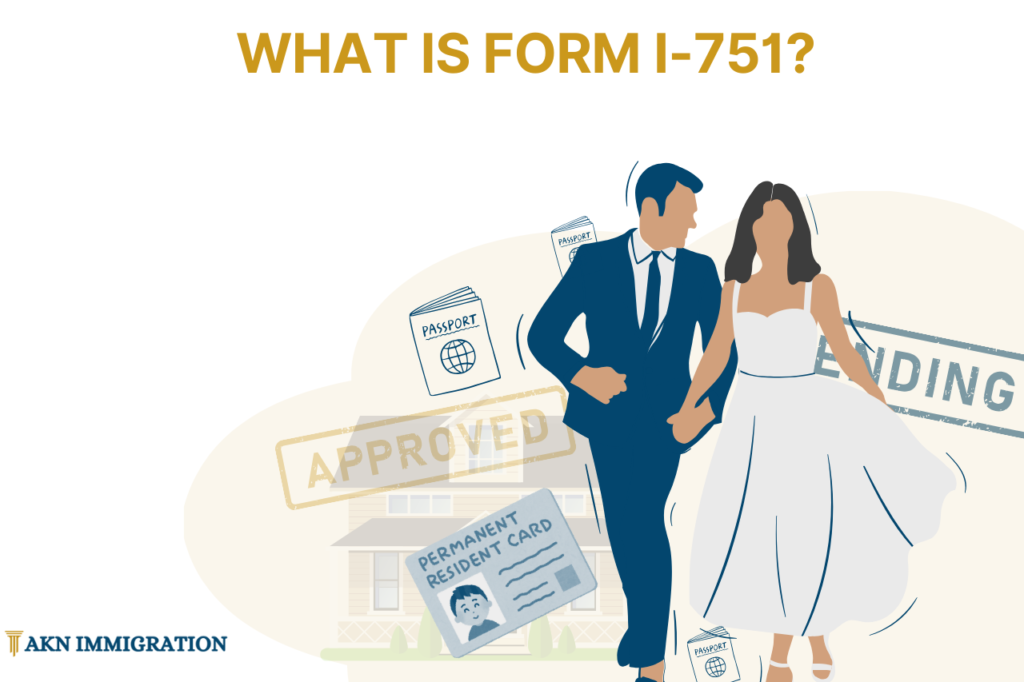
We understand that navigating the U.S. immigration system can be overwhelming, especially when faced with evolving guidelines like those recently announced by USCIS.
USCIS Removes Expiration on Form I-693 Medical Exam Validity Period.
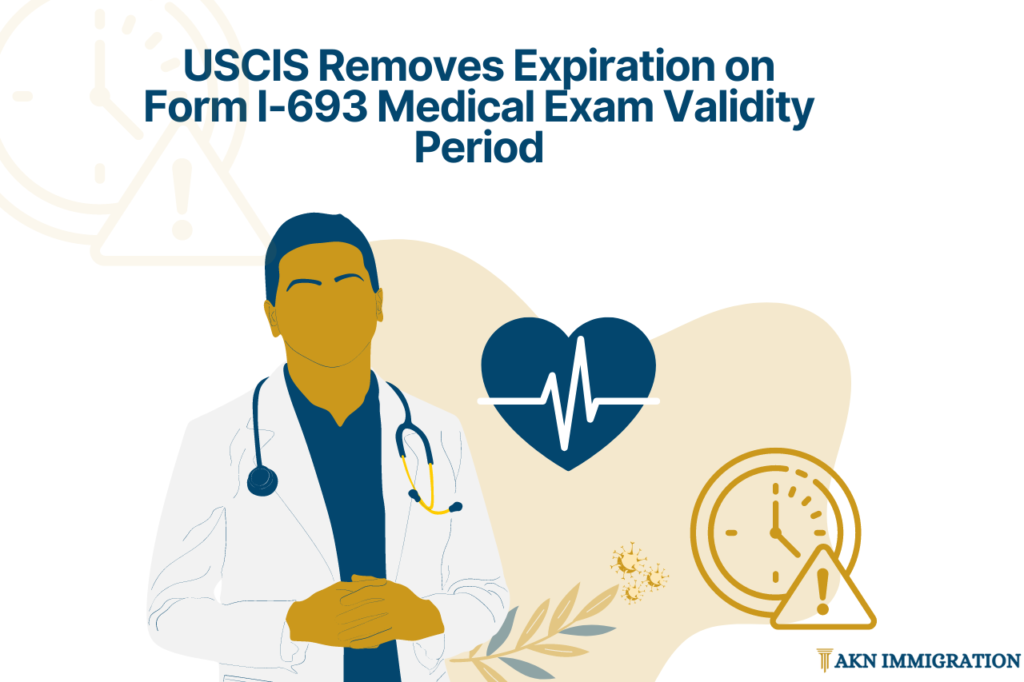
We understand that navigating the U.S. immigration system can be overwhelming, especially when faced with evolving guidelines like those recently announced by USCIS.
Can Multiple DUI Charges Affect My Immigration Status?
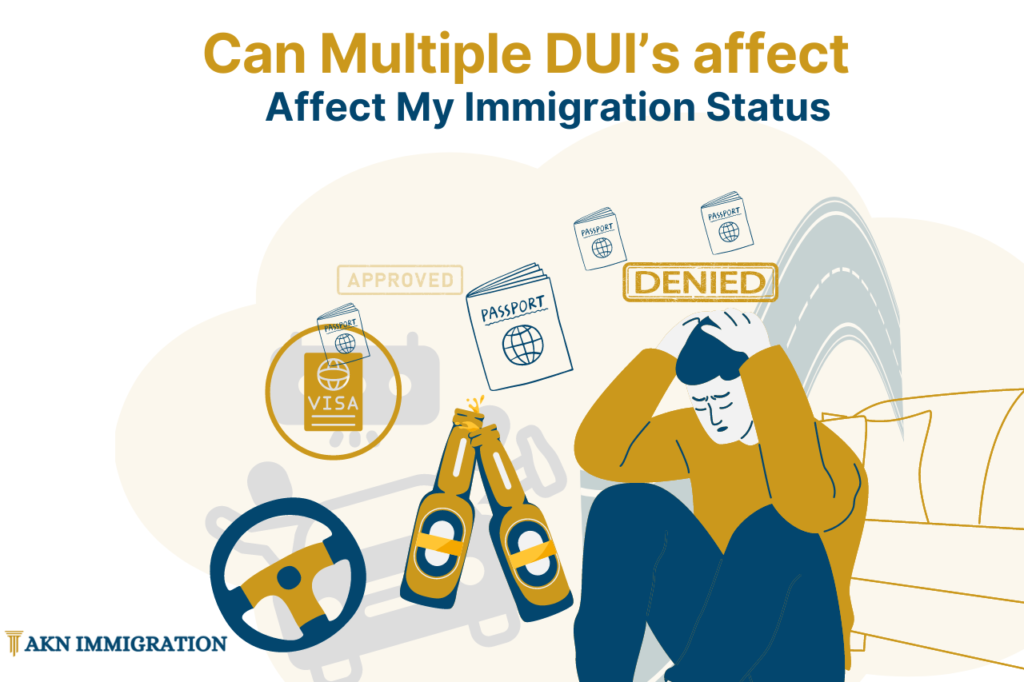
Have you ever had a night out with friends that took an unexpected turn? Maybe you were bar-hopping or enjoying a get-together and suddenly found yourself face-to-face with the police on your way home.
